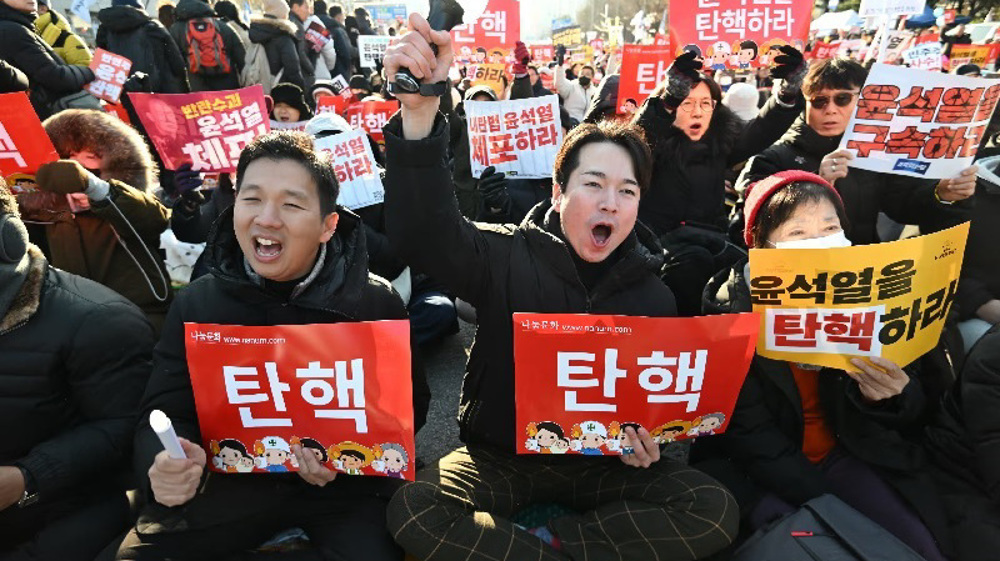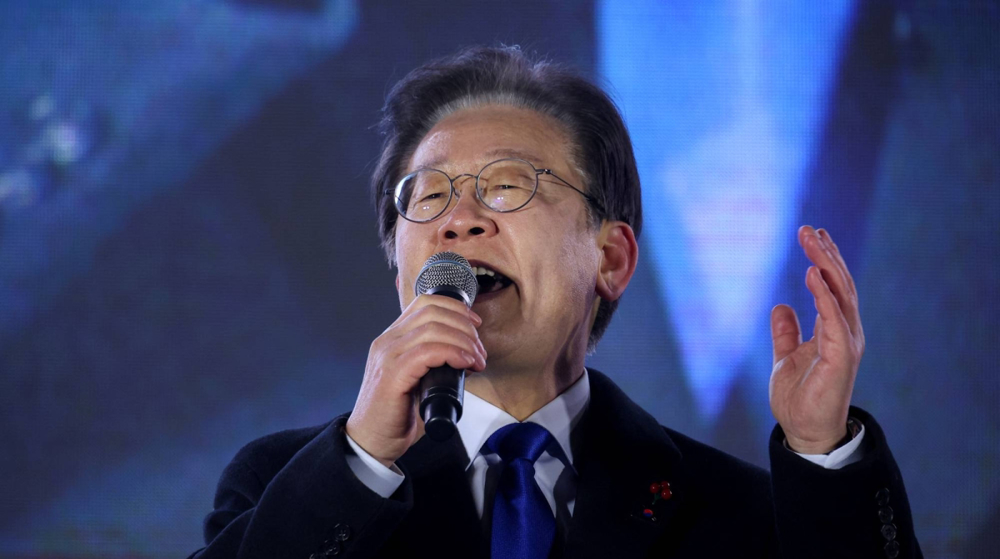New North Korea missile launch ended in failure: South
South Korea says the North has attempted to launch another powerful missile from its east coast, but the launch apparently failed.
Seoul’s Defense Ministry said the launch took place at around 5:20 a.m. local time (2020 GMT Monday) near the eastern port city of Wonsan, but it was likely to have exploded at about the time it lifted off from a mobile launcher.
“We believe that it was a failure,” said Jeon Ha-gyu, spokesman for the South Korean Joint Chiefs of Staff, adding, “As to why and how it failed, we are in the process of analyzing that and can’t give more details at the moment.”
The ministry did not speculate on the type of missile, but South Korea’s Yonhap News Agency cited military sources as saying it was a powerful, medium-range Musudan ballistic missile.
The South officials said it was the fourth time Pyongyang tried to test-fire the intermediate-range missile. They claimed the North had attempted three more test launches of the missile in April, all of which failed.

The missile has the range to reach any part of Japan and the US territory of Guam, in the northwestern Pacific Ocean.
On Monday, Japan put its military on high alert for a possible ballistic missile launch by Pyongyang.
“We have no reports of any damage in Japan,” said Japanese Defense Minister Gen Nakatani. “We are gathering and analyzing data. The Defense Ministry is prepared to respond to any situation.”
“North Korea shows no sign of abandoning the development of nuclear missiles and so we will continue to work closely with the US and South Korea in response and maintain a close watch on North Korea,” Nakatani added.
North Korea has vowed to develop a nuclear arsenal in an effort to protect itself from the US military, which occasionally deploys nuclear-powered warships and aircraft capable of carrying atomic weapons in the region.
The country conducted its fourth nuclear test in January and carried out the launch of a long-range rocket in February, which it said was aimed at placing an earth observation satellite into orbit.
Washington and Seoul described the practice as a cover for an intercontinental ballistic missile test.
Pyongyang, which is under harsh UN sanctions over its nuclear tests and missiles launches, says it will not give up on its nuclear deterrence unless Washington ends its hostile policy toward Pyongyang and dissolves the US-led UN command in South Korea.
Washington holds joint military maneuvers with Seoul, which Pyongyang views as preparations for war and a direct threat against its security.
VIDEO | Yemenis praise the military for its successful operations against Israel
VIDEO | Israel continues to bomb Gaza homes
VIDEO | An insider's view of the country: Meybod City in Yazd
‘All wars have rules. All of those rules have been broken’ by Israel
VIDEO | Report flags India’s violation of rights of Rohingya detainees
Turkey's foreign minister meets Syria's de facto leader in Damascus
VIDEO | US Syria plots
'Next to impossible' to rescue patients from Gaza's Kamal Adwan Hospital: Director













 This makes it easy to access the Press TV website
This makes it easy to access the Press TV website